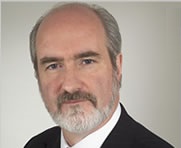Cabinet minister
When the Labour Party won power in the 1999 election, Burton became part of the new Cabinet, assuming the roles of Minister of Internal Affairs, Minister of Defence, Minister for State-Owned Enterprises, Minister of Tourism, and Minister of Veterans' Affairs. In 2002, Internal Affairs and Veterans' Affairs were transferred to George Hawkins. In February 2005 he became the Minister of Treaty of Waitangi Negotiations, and dropped the State-Owned Enterprises portfolio.
In late 2004, with Jonathan Hunt set to retire from politics, Burton was regarded by many as the Labour Party's preferred choice to replace him as Speaker of the House of Representatives. In the end, however, Labour decided to nominate Margaret Wilson for the position.
Burton sponsored the introduction of the Electoral Finance Act, which made election funding more transparent and open by making anonymous donations illegal if they exceed the sum of $12,000. The Act capped the highest donation to the sum of $120,000 and increased public funding in elections to allow for more funding to go to a wider range of parties. The Act extended the regulated period classifying an election year to 1 January of the election year.
In November 2007 Burton resigned from his Cabinet positions during Prime Minister Helen Clark's portfolio renewal. When Labour's party list was written prior to the 2008 general election, he was given a low placing of 39. [3] He then lost his seat in a nationwide swing to the National Party, and due to his place on the list, was not returned to parliament. [4]
Burton stood unsuccessfully for Taupō District Mayor in the 2010 local body elections. [5] After Darren Hughes resigned his list seat in 2011, and the next person on the Labour Party list, Judith Tizard, declined to take it up, Burton was entitled to reenter Parliament for the remainder of the term. However, he also declined the offer. [6]
